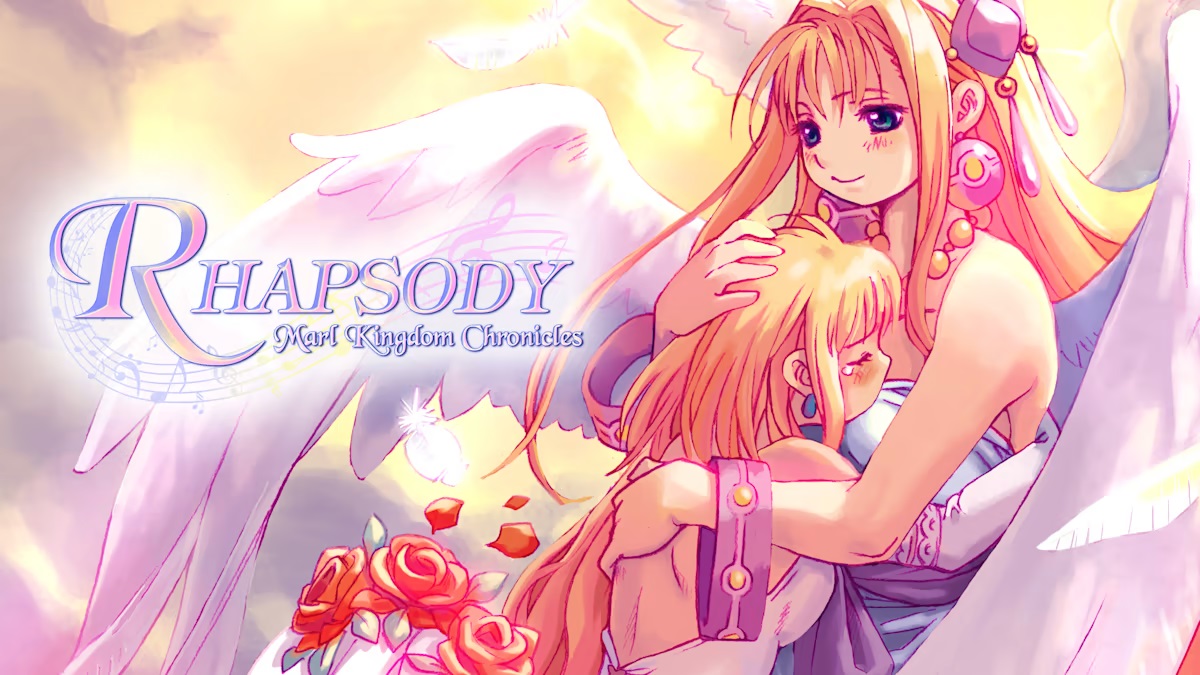Rhapsody: Marl Kingdom Chronicles
Developer: Nippon Ichi Software
Publisher: NIS America
Platforms: Switch (Reviewed), Playstation 5, PC
Release Date: Available Now
Price: $49.99 – Available Here
Overview
Music and video games go together like peanut butter and jelly. Rhapsody is one franchise that represents that ideology perfectly, and is finally available in the west thanks to NIS bringing their compilation Rhapsody: Marl Kingdom Chronicles to the west. With new dubs, these fully translated versions of the second and third games look to bring a new beat to adoring fans, but does it still hold strong notes after two decades? Let’s find out.
Story
There are two tales within this package, both taking place after the events of Rhapsody: A Musical Adventure, but the narratives are pretty easy to follow. To summarize a bit, Rhapsody as a whole is kind of like a Disney Princess RPG of sorts, embodying whimsical yet charming locales to explore as you follow the protagonist’s adventure. The first title featured Cornet, who was out to save a prince. Following up, Rhapsody II: Ballad of the Little Princess features Cornet and Prince Ferdinand’s daughter Kururu as she is looking for love. Yeah, not the most complex of plots, but one that is very different and refreshing from other JRPGs on the market.
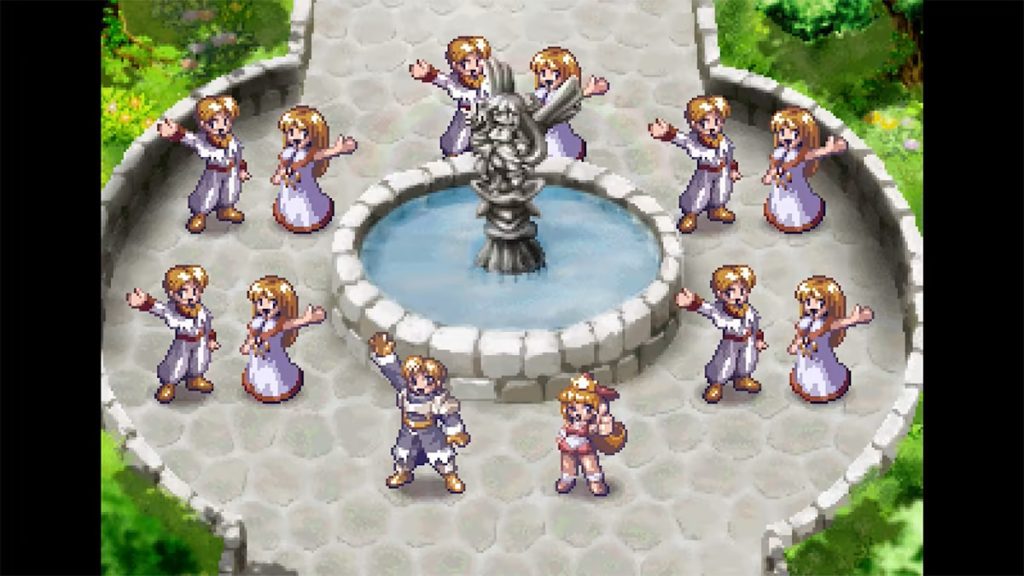
Rhapsody III: Memories of Marl Kingdom is more of an anthology, fleshing out more narrative between the first two titles in an anthology format, broken up into six chapters where we revisit characters and moments that present new context to the story overall. I really have never played an RPG like either of these two, as they forgo the dark and sinister big-bad, and instead feature simple and breezy stories that are easy to consume and digest, similarly to that of a Saturday morning cartoon, set in Nippon Ichi’s universe. Sure, some will find it to be too silly and light, but there is absolutely an audience, as despite the lack of depth, there is a lot of lovely and humorous moments within each that many will find quite endearing.
Gameplay
Going into this collection, my biggest suprise was seeing the battle system in Rhapsody II, as like its follow-up, the “tactical grid-based” battle system has been replaced for a more standard turn-based set of mechanics. Sure, its a bit of an adjustment, but it ultimately feels for fitting and streamlined than what the first installment had to offer. While the game still relies on monster catching mechanics for battle with puppets, now the puppets are equipped to a human character. Players have their puppets, which can leveled with the main protagonist, and do battle, gain experience, and grow stronger in order to be victorious in battle. There are also skills that can boost opportunities for major attacks from the humans (known as “Rewards”), offering incentive to utilize the equipped talent, rather than just rely on the standard form of battles with the humans.
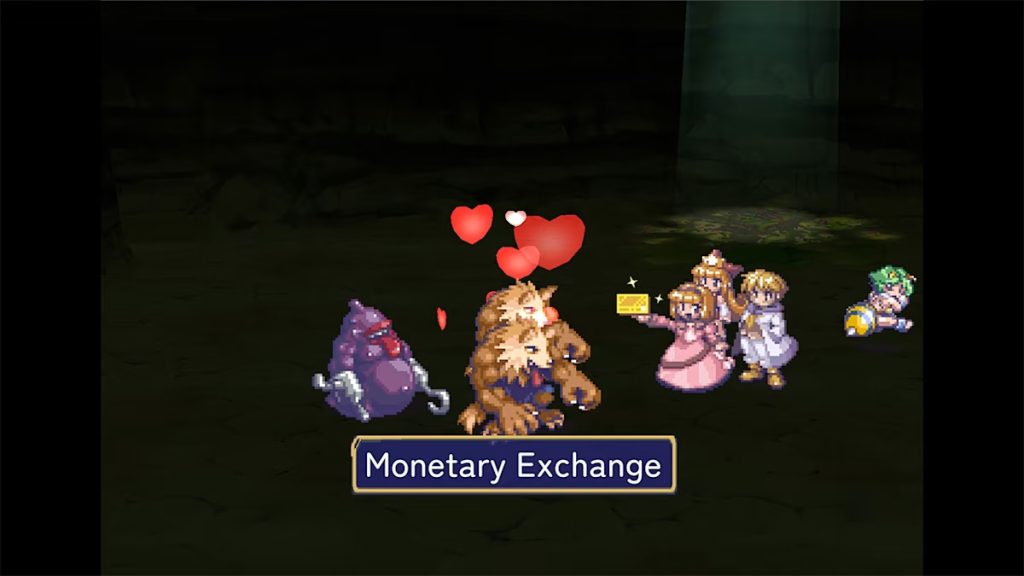
Its a fine system that takes little risks in exchange to feel more traditional, but becomes a bit repetitive as the game rolls on due to the lack of variation as a whole. Rhapsody III mostly adapts the same mechanics, but has the player do battle with “leaders” that control puppets. There are also multiple rows due to twelve characters being on the screen at once, with only the front row being controllable. It sounds complicated because it kind of is. The third installment took what worked in Rhapsody II and tries to elevate it, and while its easy to get the hang of things, I found myself leaning into the previous title’s format better as this one is a bit grindy and less fluid due to the new battle mechanics involved.
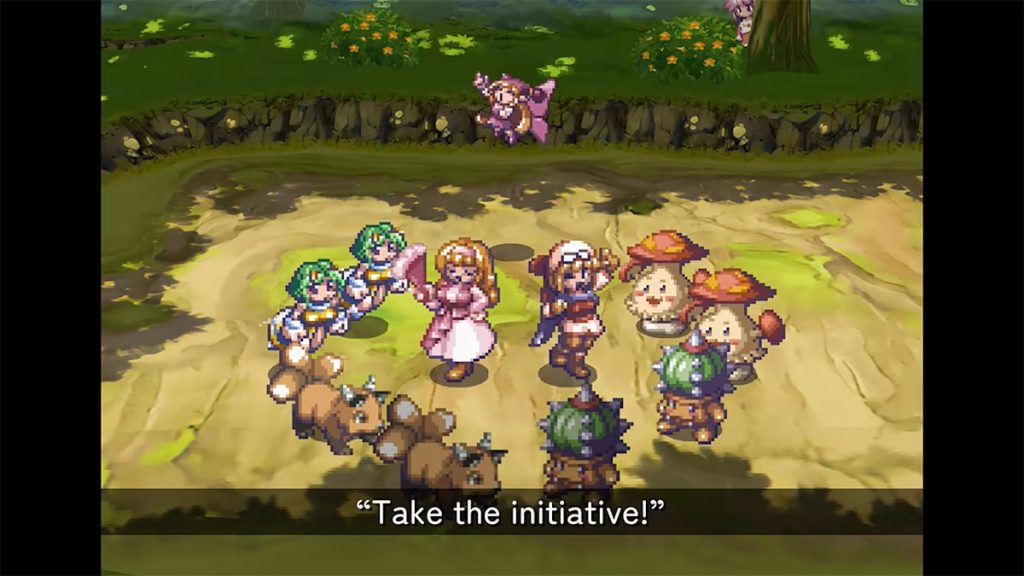
Other than battles, there are a ton of places to explore, and of course the musical numbers. Sure, battling is fine, but the charm of these titles really is the story, and the gentle – yet engaging world you are involved with can be a lot of fun to poke and prod around in, which for myself was one of the finer features. Despite differences, these two titles come off as simple, yet sometimes tedious entries that have a lot to do, but not a lot of meat for those looking for substance.
Audio
This is probably the selling point that instantly boosts the more average mechanics as a whole. I found the dub to be lovely, and something we really do not get to see in remasters. The voice cast does a great job of fitting right into the silly atmosphere, and the songs – yeah the songs are pretty great as well – filled with humor and touching lyrics that are sure to bring a smile to your face. I would have liked to see an attempt at translating the songs as well, but the Japanese audio is still great, so there really isn’t anything negative to say in terms of the soundtrack and audio production for both titles.

Visuals
I enjoy that pixel-art vibe and in many ways, the cool colors and settings for both titles within Marl Kingdom Chronicles look fantastic. Animations are decent, and the towns feature well detailed little touches that do a lot to bring this story to life. I do think this franchise relies a bit too much on resuing assets for battles, such as backdrops, which makes battles feel a little less connected to new areas later on. The overlays also utilize that hollow design we see with most remasters, which is forgivable, but it would have been nice to have menus and display screens treated with a bit more love in a game that almost demands it.
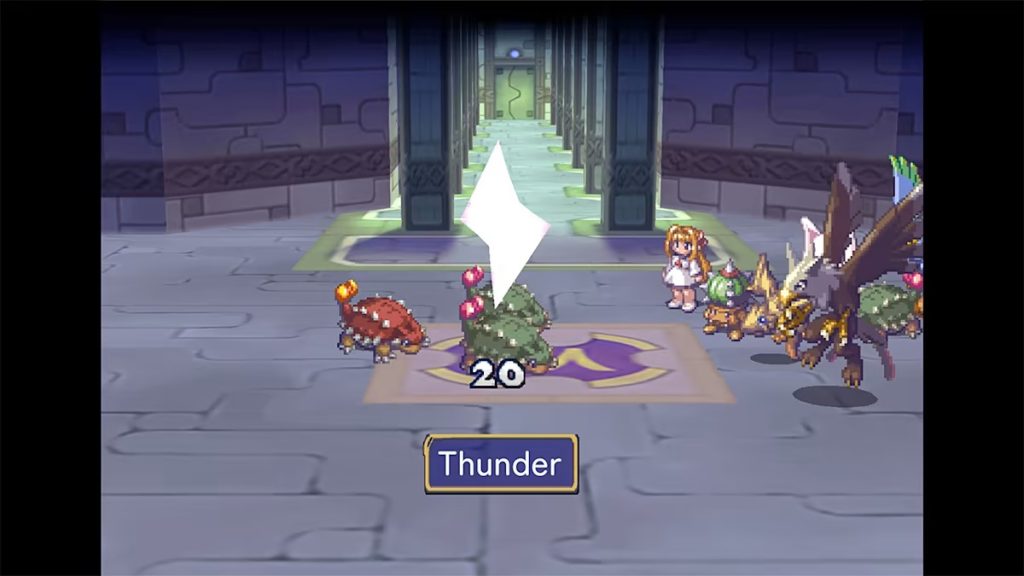
Overall
Rhapsody: Marl Kingdom Chronicles brings us two classics that are fully of personality and charm. Sure, the second may feel more cohesive and enjoyable, but there is certainly a lot to do in either title that will allow players to get lost for long periods of time, simply exploring this world with their volume turned up as they take in the one of a kind atmosphere. Most RPG fans consider Rhapsody to be an “entry level” game, and that is mostly true with the sequels. That said, the battle system here is far more engaging and enjoyable this time around, and the work done to dub and bring these titles here is absolutely appreciated. Whether you’re curious or just an avid fan of following Cornet’s little tale, Rhapsody: Marl Kingdom Chronicles is an enchanting collection that is sure to bring something different to your game library.
Capsule Computers review guidelines can be found here.


